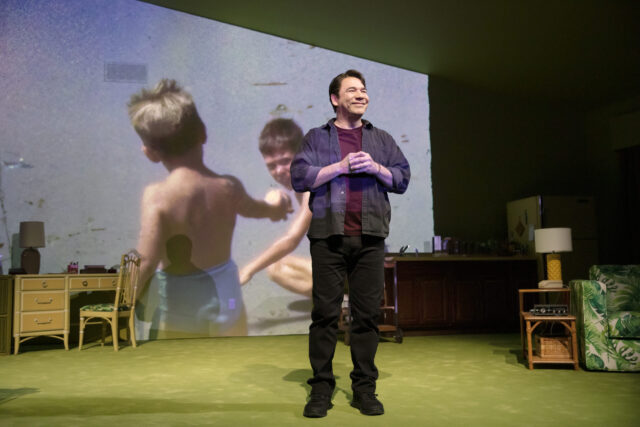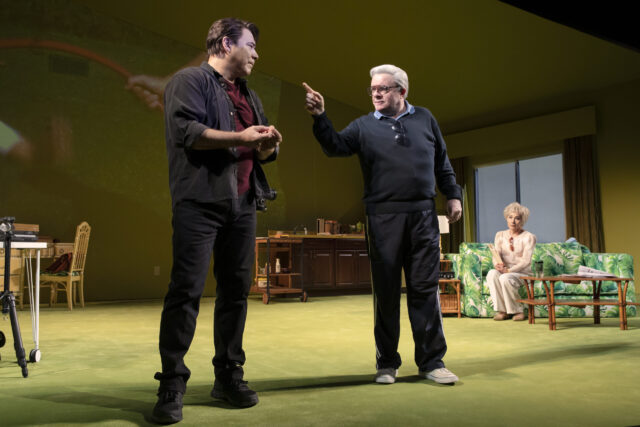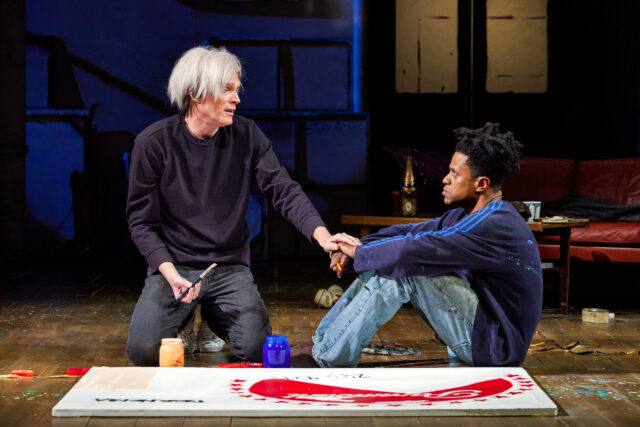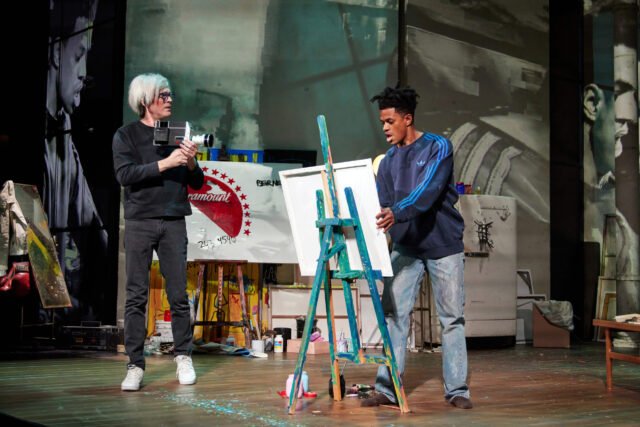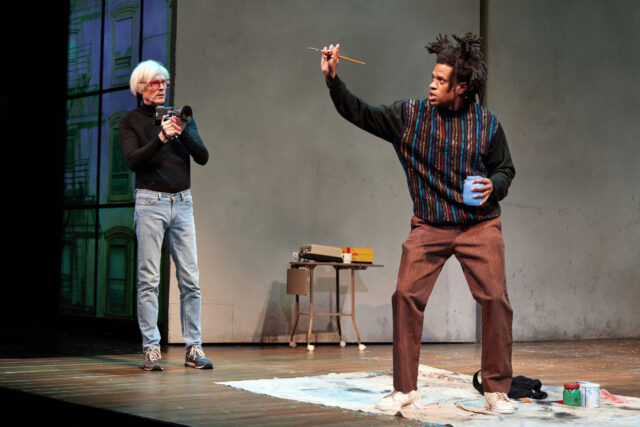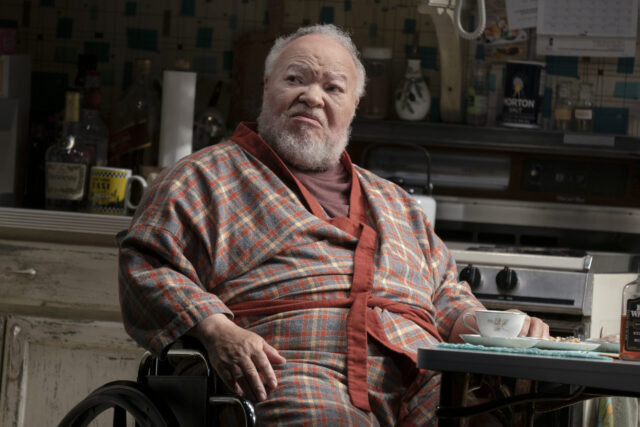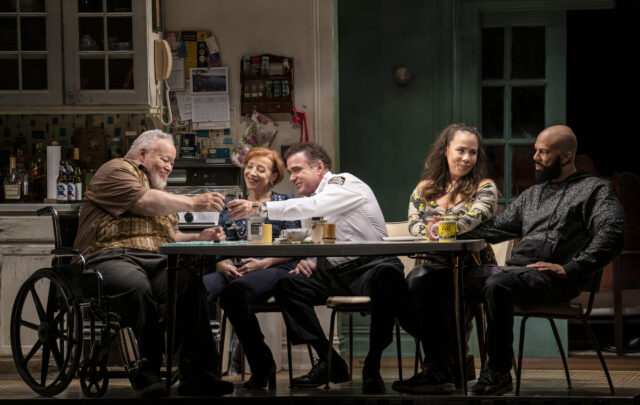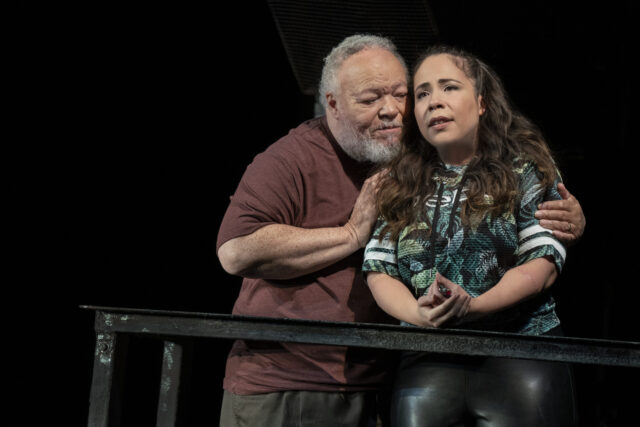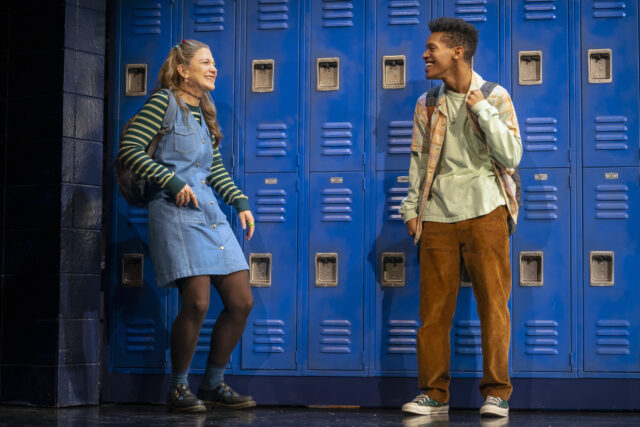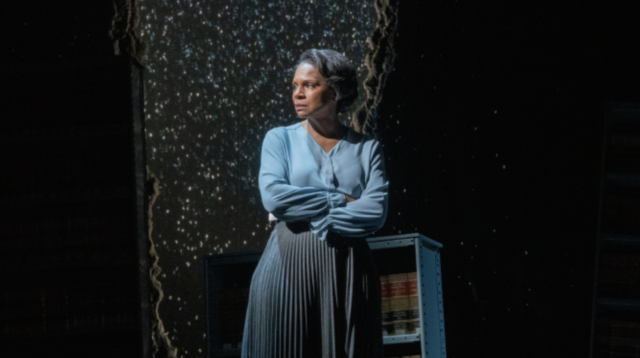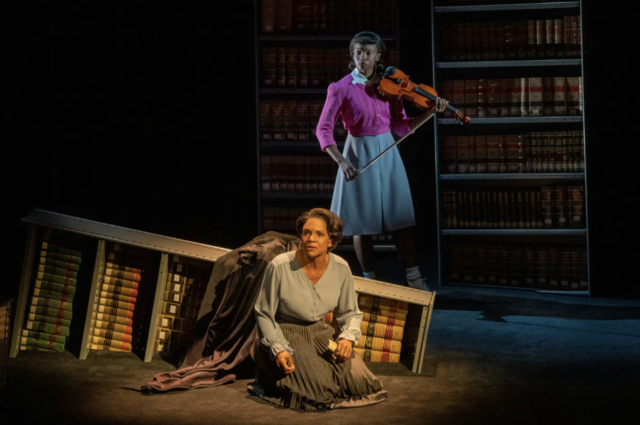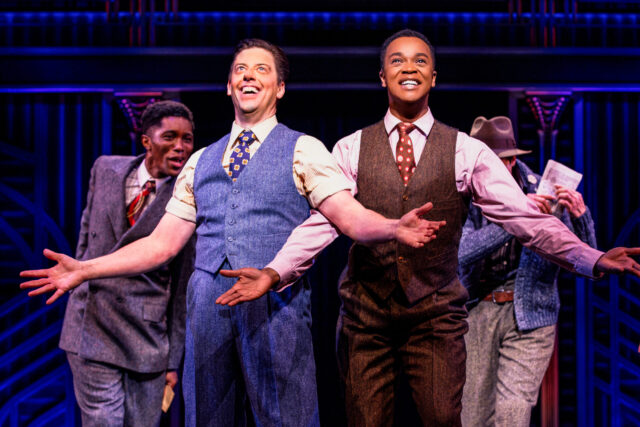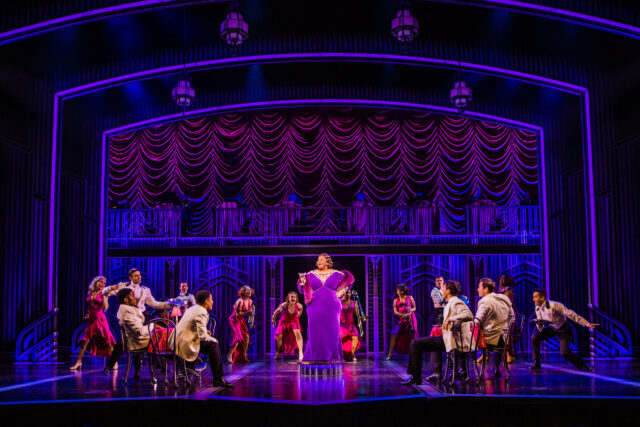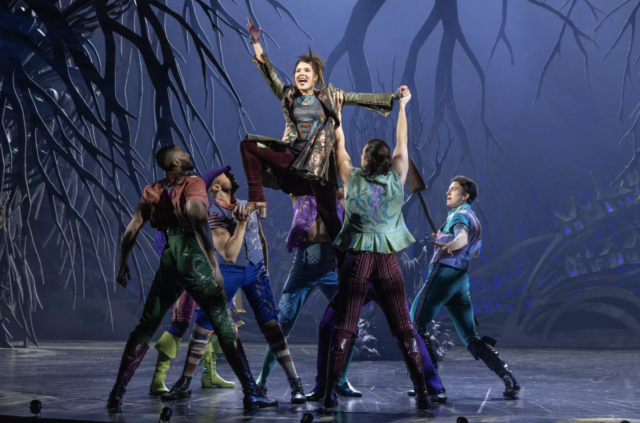
Bad Cinderella (Linedy Genao) rises up in Andrew Lloyd Webber Broadway musical (photo by Matthew Murphy and Evan Zimmerman)
BAD CINDERELLA
Imperial Theatre
249 West 45th St. between Broadway & Eighth Ave.
Tuesday – Sunday through June 4, $48-$298
badcinderellabroadway.com
At last Friday night’s performance of Bad Cinderella at the Imperial, a boisterous trio of big men sat behind us, their belly laughs and rousing cheers shaking our row throughout the first act. During intermission, I turned to my friend and said, “I want to watch what they’re watching.”
Indeed, what show were they watching?
I am not going to jump on the bandwagon and take advantage of the American retitling of Andrew Lloyd Webber’s Cinderella, which has added the word Bad, but it’s hard not to. I found the two-and-a-half-hour musical more insulting and embarrassing than downright bad; I knew we were in trouble when my musical-loving friend wasn’t giving even perfunctory applause after songs. “You’ve ruined theater for me forever,” she told me outside at intermission, as if it was my fault for taking her. “I might never see another show.”
Bad Cinderella is everything you’ve heard and worse.
Lloyd Webber, whose composer son Nick tragically died from gastric cancer on March 25 at the age of forty-three, has some fierce competition in the alt-fairy-tale Broadway musical realm. Stephen Schwartz and Winnie Holzman’s Wicked has been packing them in on the Great White Way since 2003. The recent limited-run revival of Stephen Sondheim’s Into the Woods was spectacular. And musical minions are still kvelling over Douglas Carter Beane’s 2013 family-friendly adaptation of Rodgers + Hammerstein’s more traditional Cinderella.
Bad Cinderella is ostensibly about being proud of one’s personal identity and defying the populist adherence to conventional ideas of beauty and success. But in its attempts to be clever, unpredictable, and, dare I say, woke, it steps all over itself, fumbling its themes and confusing its basic principles.

The Queen (Grace McLean) and the Stepmother (Carolee Carmello) do battle in Bad Cinderella (photo by Matthew Murphy and Evan Zimmerman)
The show opens with the innocuous “Buns ’n’ Roses / Beauty Is Our Duty,” in which random characters at the Belleville Market revel in their hotness amid garish sexual innuendo. “Hot buns! Check out my hot buns!” the hunky baker declares. “True, there are not buns / Equal to mine.”
Various townspeople blast out, “Our town Belleville is a place so picturesque, / Makes every other town jealous. / So exquisite, every other seems grotesque. . . . Every single citizen’s a cut and chiseled god, / Beauty is our duty. / Everyone among us has a ripped and rockin’ bod. . . . We’re quite shallow, / We’re obsessed with how we look. / It’s quite OK if you’re dumb here. / Every lawn is manicured / As well as every hand.”
“Wrinkles are not tolerated, torsos must be tanned. / Acne is a misdemeanor, / Cellulite is banned. . . . So what if we’re a bit snooty” is about as sophisticated as Tony winner David Zippel’s lyrics gets.
The book, by Oscar winner Emerald Fennell and adapted by playwright Alexis Scheer for the Broadway run, is a “hot mess,” which is what the townspeople call Cinderella. Cinderella is ripe for interpretation; the Brothers Grimm and Rodgers & Hammerstein are only two of thousands who have told a similar tale going back two millennia. The most famous version was written in 1697 by Charles Perrault, the basis for the 1950 animated film by Walt Disney, a rags-to-riches story of magic, abuse, discrimination, misogyny, and outmoded ideals of what makes a person attractive and desired.
Director Laurence Connor and choreographer JoAnn M. Hunter hit a brick wall just a few minutes in, after the unveiling of a statue in honor of the missing Prince Charming (Cameron Loyal) reveals that Cinderella (Linedy Genao) has defaced it with a graffiti-esque banner declaring, “Beauty Sucks.” The townspeople call her a “psychopath” who “should be arrested,” but a moment later the hunky men are lifting her up as if she’s a hero, not a villain, and she proudly proclaims, “I’m a loner, I’m a freak, a rebel. . . . a girl from the gutter, unpleasant peasant, no one, a nutter, unwelcome present.”
Cinderella is badly mistreated by her stepmother (Carolee Carmello) and two gorgeous but hollow and dimwitted stepsisters, Adele (Sami Gayle) and Marie (Morgan Higgins). Her only friend is Prince Sebastian (Jordan Dobson), now heir to the throne, a shy young man with no kingly aspirations who the women in the town deride, complaining, “What a disappointment is this prince! / Look at him! My heart can’t help but wince! / He’s not the type on which girls set their sights.”
It doesn’t help that Sebastian is handsome, even in his militaristic outfit, even if he is dour, unhappy to be thrust into the limelight, while Cinderella, in her long black leather jacket, tight-fitting shirt, and maroon pants, is not only cool but hot, at least to the audience if not to the vain citizens of Belleville. “I’m the opposite of ev’rthing you are!” she sings. So why, about halfway through the show, does she go to Godmother (Christina Acosta Robinson), a nasty plastic surgeon, wanting her to transform her into a beauty, to be just like everyone else so the prince will choose her for his bride at the ball?
“The damsel wants to save the prince in distress. How very modern
of you,” Godmother says, but there’s nothing modern about it. No longer a fairy, Godmother doesn’t work magic, so her assertion that Cinderella’s makeover will last only until midnight is absurd, as is Sebastian’s inability to recognize Cinderella at the dance.
Bad Cinderella is laden with huge plot holes and incongruities galore; while there’s no need to stick close to any of the familiar versions, it feels like Connor (Les Misérables, School of Rock), Lloyd Webber (Jesus Christ Superstar, Cats, The Phantom of the Opera), Fennell (Promising Young Woman, Killing Eve), Scheer (Our Dear Dead Drug Lord, Laughs in Spanish), and Zippel (City of Angels, The Woman in White) choose the least reasonable turn at each crossroad as they teeter back and forth between old-fashioned values and contemporary mores.
Gabriela Tylesova’s sets, dominated by the forest’s ominous tree branches, serve their purpose, although her costumes leave something to be desired, specifically, men’s shirts, as several male dancers are bare-chested every step of the way. Luc Verschueren’s hair and wigs are fun, Bruno Poet’s lights are bright, and Gareth Owen’s sound is loud. The title song might stick with you for a while, but you’ll try hard to get it out of your head; the British show earned a Grammy nomination for Best Musical Theater Album, naming Andrew, Nick, and Greg Wells as producers.
Carmello (Scandalous, Lestat) and McLean (Cyrano, Natasha, Pierre & the Great Comet of 1812) go too far over the top, especially in what should have been a classic duet in which they battle each other (“I Know You”). Dobson (Hadestown, West Side Story) lacks style and energy as Sebastian but is still likable, while Genao (On Your Feet, Dear Evan Hansen) fares well as Cinderella despite the inconsistencies built into the character.
Ultimately, Bad Cinderella is unable to figure out what story it wants to tell and who its audience is. The creative team should talk to those three men sitting behind me, even if they did quiet down significantly in the second act.
